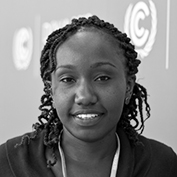Hedegaard on Ambition, Targets and Poland
Ruth Nyambura | December 6, 2012.

Connie Hedegaard, the European Union’s Commissioner for Climate Action, is nothing but upfront when asked if the EU will increase their emission reduction commitments in the second phase of the Kyoto Protocol.
“Unfortunately no, it’s not going to happen, at least not at this particular forum,” she told The Verb.
As it stands, the 27 member block of European nations has only committed to reducing emissions from green house gases by twenty percent between 2013 and 2020.
According to Hedegaard, the EU’s pledge is not as terrible as people are painting it out to be. When measured against the Kyoto Protocol’s targets, the twenty percent reduction actually translates to a 24 percent and if you were to include other domestic policies, such as energy efficiency, the number is actually 27 percent. The additional reductions are not included in the way the EU accounts and verifies its Kyoto reductions though.
Additionally, the EU has passed numerous energy efficiency laws ranging from phasing out of incandescent light bulbs by 2016 to increasing the percentage of energy produced by renewable sources to twenty percent by 2020. The EU are also looking at carbon capture and storage, a contentious technology that involves capturing carbon and storing it underground.
EU targets have been under close scrutiny from civil society and African governments. In 2009, a renewable energy directive, that required at least nine percent of the EU’s transportation energy to come from renewable sources by 2020, was adopted. This target is now twenty percent, and is also being blamed for causing conflicts, displacements and food insecurity in rural African communities. Multinationals have taken advantage of this directive to make profits by investing in back-door deals in Africa.
Biofuels are being seen as the best way for the EU to reach their target but what this does is shift resource usage from providing food in Africa to providing energy for the EU. An ActionAid report notes that this increases the link between energy and food markets which leads to price volatility. There is likely to be a twenty percent price increase for maize, sugar and vegetables by 2020.
Several organisation, including the World Bank and Food and Agricultural Association, have conducted research that all reaches the one conclusion: the EU’s choice of biofuels as its preferred energy source will do more harm than good. This is particularly true for developing nations which provides the resources to grow fuel crops.
Given that the EU’s twenty percent reduction would only be scratching the surface of required reductions, it is widely believed that the bloc needs to up their ambition. However, this seems unlikely with Poland, a source of internal EU problems during Durban last year, set to host the next negotiations.
On that front, Hedegaard agrees that Poland needs to be more ambitious but didn’t go as far as to call them aggressors.
By Ruth Nyambura, photo by Laura Owsianka.










comment